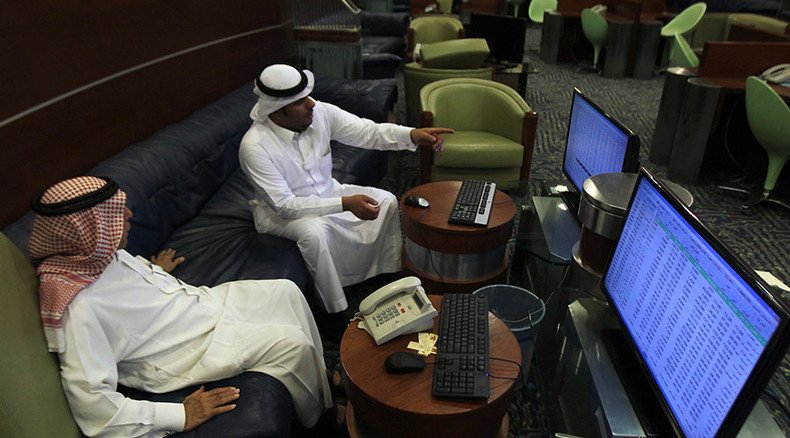Saudi bank deposits see biggest drop in 25 years

While Saudi Arabia is pumping record amounts of oil this year, low crude prices seem to be backfiring. As borrowing rate soars, bank deposits have dropped to the lowest level in more than two decades and traders say the riyal may be devalued.
"The drop in deposits in October, in absolute amount, is probably the biggest since the 1990s," Riyadh-based Murad Ansari, a bank analyst at EFG-Hermes Holding SAE, told Bloomberg.
"There are payment delays from the government to contractors, which is one of the reasons for the decline in private sector deposits, and public sector deposits are shrinking as the government is running a deficit," he added.
Saudi Arabia could be bankrupt by 2020 – IMF https://t.co/P4d6iQIzMTpic.twitter.com/vqOE2hIOu5
— RT (@RT_com) October 23, 2015Demand for deposits fell 4.7 percent in October as people withdrew money from banks.
Saudi Arabia’s three-month interbank offered rate, the amount banks charge each other to borrow money and a benchmark used to price loans, rose to 1. 11625 percent, which is the highest level since April 2009.
Riyadh has been forced to cut expenditures to save the riyal-dollar peg introduced in 1986. According to Bank of America, Saudi Arabia will have to either cut oil production, or adjust the national currency exchange rate.
Saudi Arabia ‘could cut billions’ from budget amid plunging oil prices – report http://t.co/ue0vBb1xQmpic.twitter.com/cT5GHocPBR
— RT (@RT_com) August 26, 2015“A depeg of the Saudi riyal is our number one black-swan event for the global oil market in 2016, a highly unlikely but highly impactful risk. It is a lot easier politically to implement a modest supply cut at first than allow for a full-blown currency devaluation," Bank of America said in a report quoted by Bloomberg.
Oil prices have fallen 37 percent in the last 12 months. The main driver for that has been Saudi Arabia's policy to exceed OPEC’s production quotas to boost its market share.
OPEC members have been producing more than a million more barrels of crude per day over their 30 million daily limit for the past 16 months. Oil gives Saudi Arabia about 80 percent of its budget revenue.












